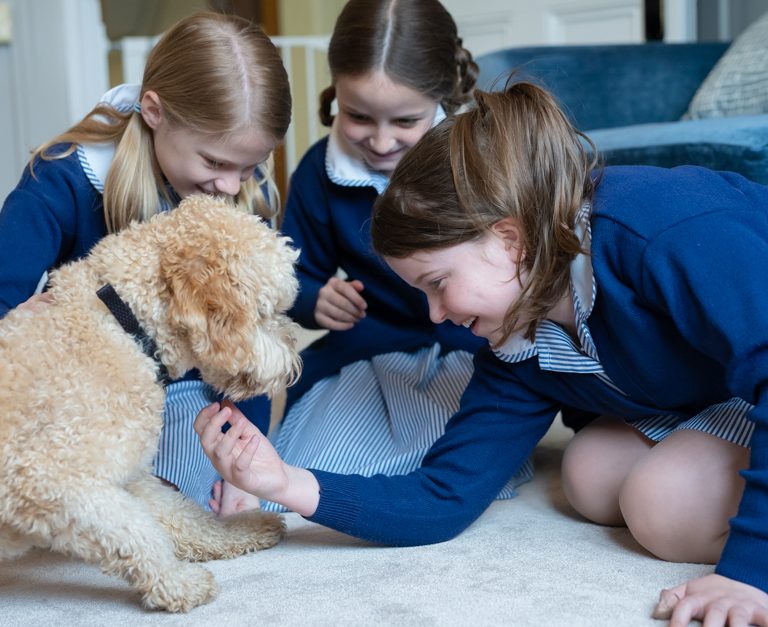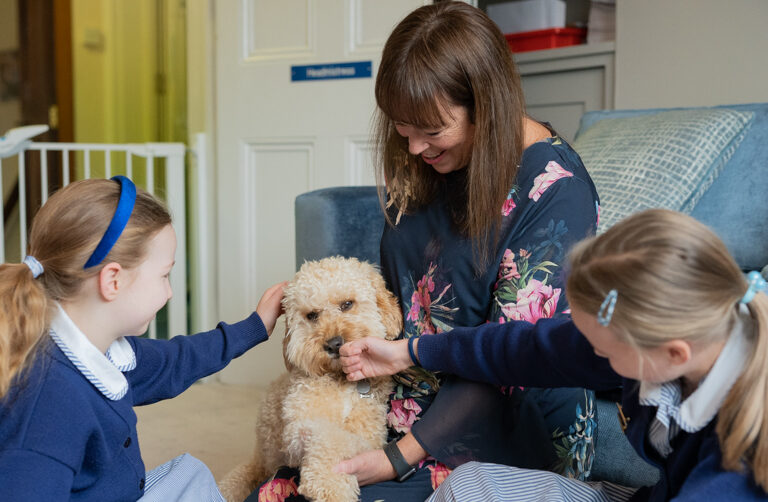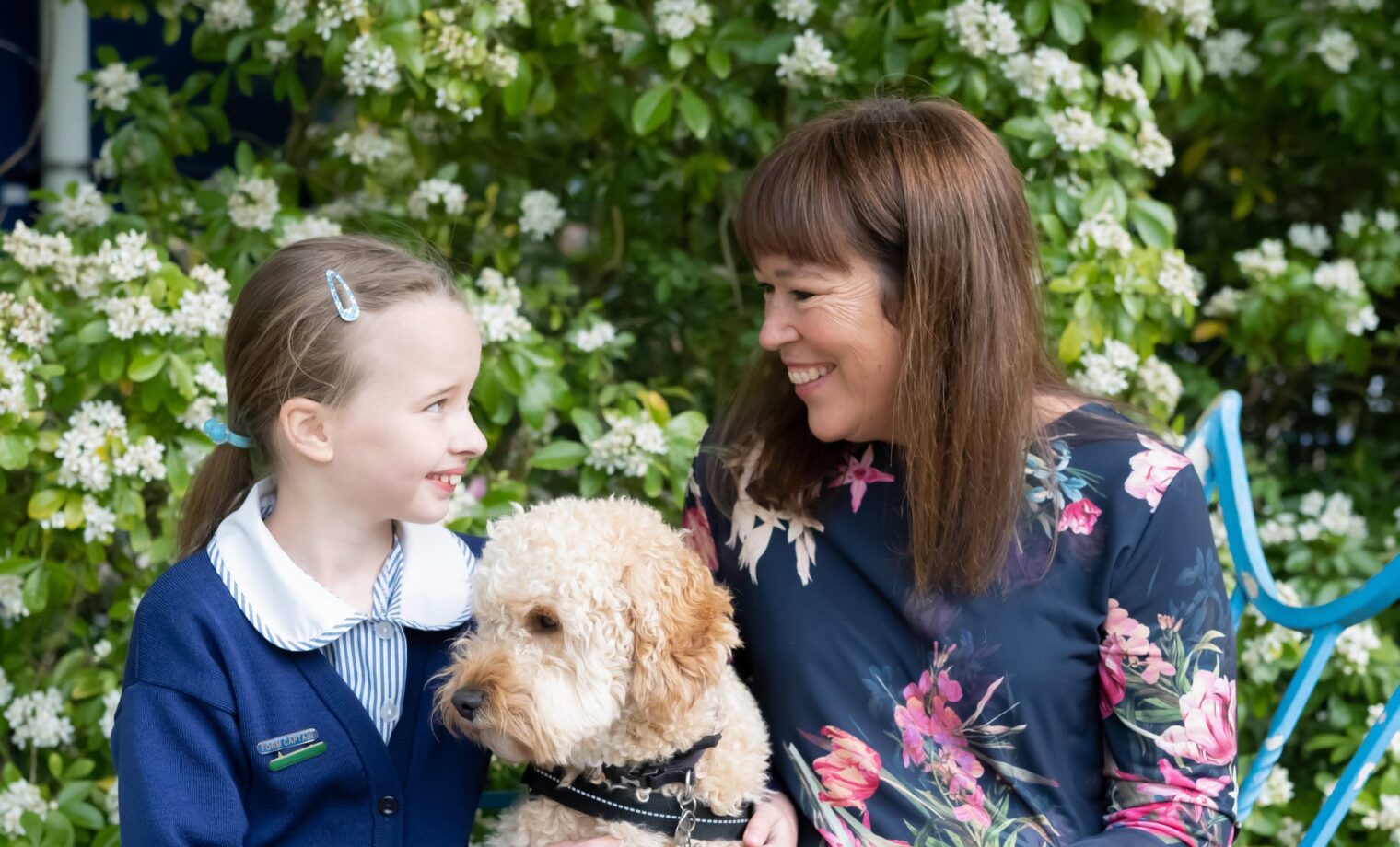The entire school community has been delighted to welcome our new School Dog, Teddie. Teddie is a Cavapoochon and is owned by the Headmistress, Mrs Lawrance, and her family. Numerous research studies have shown the benefits of therapy dogs in schools, which include:
- Cognitive development – companionship with a dog stimulates memory, problem-solving and game-playing
- Social development– a dog provides a positive mutual topic for discussion, encourages responsibility, wellbeing and focused interaction with others
- Emotional development – a school dog improves self-esteem, acceptance from others and lifts mood, often provoking laughter and fun. Dogs can also teach compassion and respect for other living things as well as relieving anxiety.
- Physical development– interaction with a furry friend reduces blood pressure, provides tactile stimulation, assists with pain management, gives motivation to move, walk and stimulates the senses
- Environmental development – a dog in a school increases the sense of a family environment, with all of the above benefits continuing long after the school day is over.
Empirical evidence shows that Educational Assistance dogs can enhance children’s psychological development, improve social skills, and increase self-esteem. Dogs in the classroom can be used to calm fears, relieve anxiety, and teach skills. In particular School dogs are used to listen to children read. Reading to dogs has been proven to help children develop literacy skills and build confidence, through both the calming effect the dog’s presence has on children as well as the fact that a dog will listen to children read without being judgemental or critical. This comforting environment helps to nurture children’s enthusiasm for reading and provides them with the confidence to read aloud.






